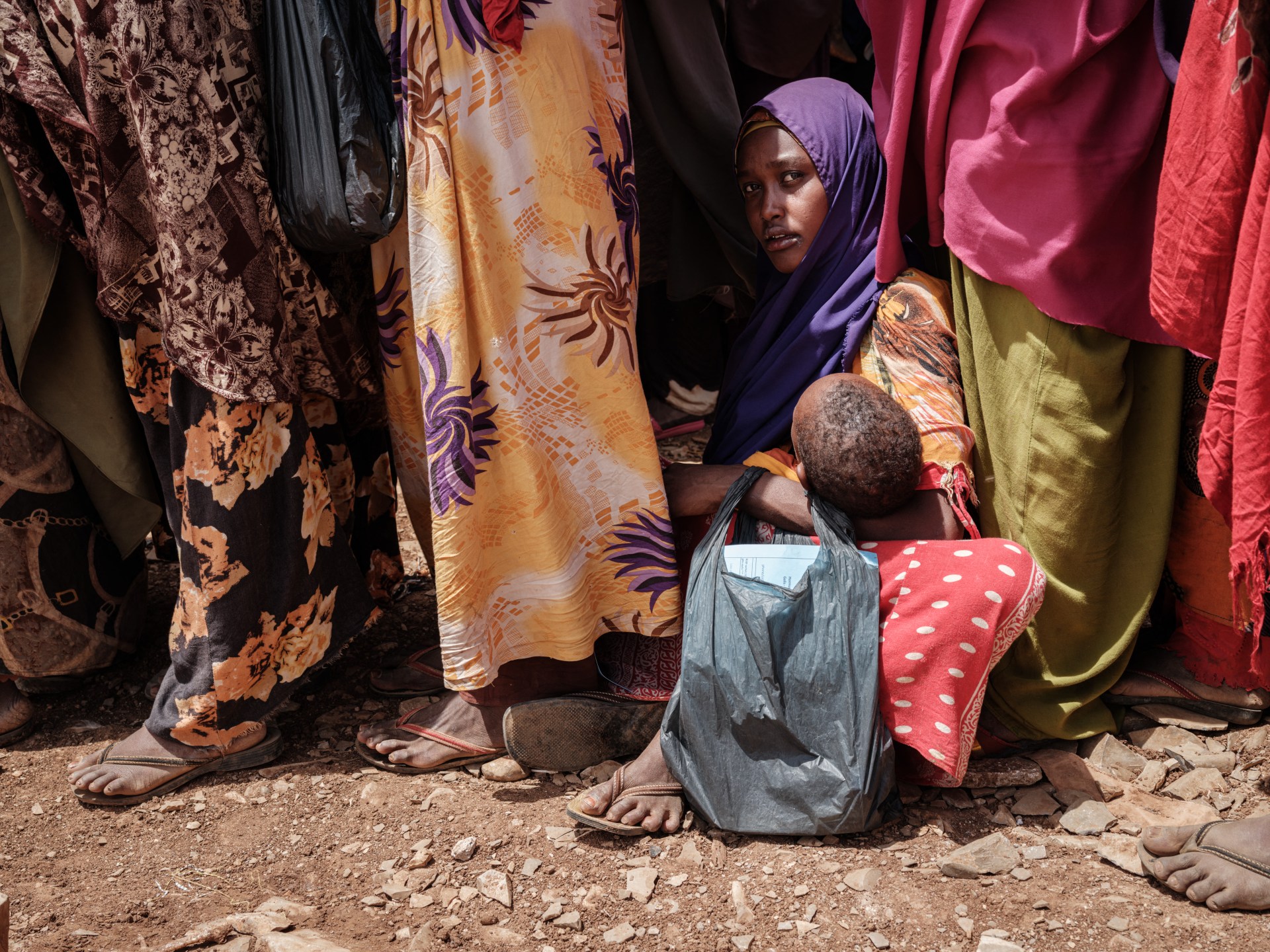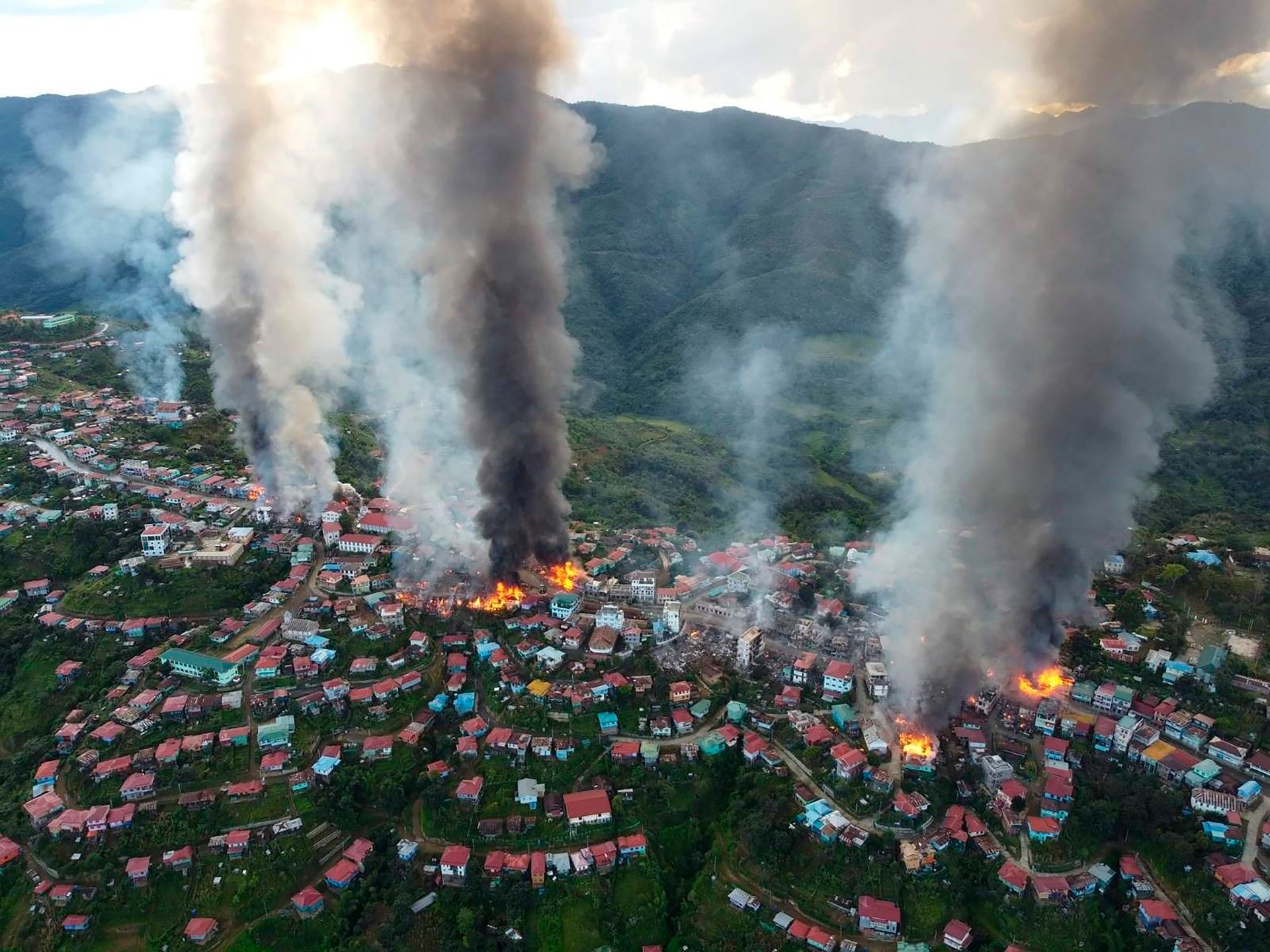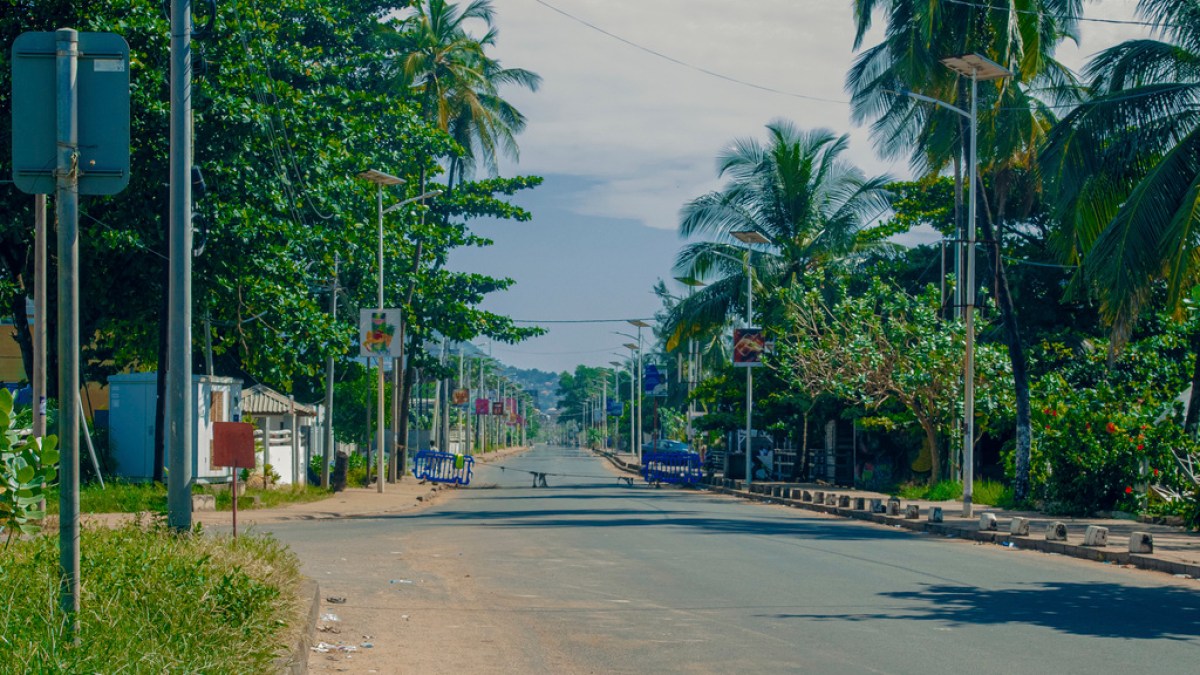Famine averted but situation ‘catastrophic’ in Somalia: UN | Humanitarian Crises News
If aid is not scaled up, famine is expected in southern Somalia between April and June 2023, humanitarians say.
Famine has been narrowly averted in Somalia, but the situation remains “catastrophic”, the United Nations says.
As a result of severe food insecurity, several parts of the country are in danger of famine in the coming months, according to a new food security report by UN and other experts released on Tuesday.
The report said more than 8 million people face “an unprecedented level of need” after five consecutive failed rainy seasons and “exceptionally high” food prices.
The report “does not lead to a declaration of famine at this point, in large part thanks to the response of humanitarian organisations and local communities”, Jens Laerke, spokesman for UN humanitarian agency OCHA, told reporters on Tuesday.
But, he warned, that “does not mean that people are not experiencing catastrophic food shortages”.
“They have kept famine outside the door, but nobody knows for how much longer,” he said.
“The underlying crisis has not improved.”
The report indicated surging numbers of people at the highest level on the UN’s five-scale food insecurity classification, known as IPC, which means they have dangerously little access to food and could face starvation.
When a large enough portion of a population is estimated to be at IPC level 5, a famine is declared.
Between now and next June, the number of people at IPC5 in Somalia is expected to more than triple from 214,000 to 727,000 as drought, violence and displacement continue to threaten people’s lives and livelihoods, according to the UN.
At the same time, some 8.3 million people across the country are expected to be at crisis level (IPC3) or above between April and June next year, up from 5.6 million today, the report said. A full 2.7 million of them are expected to be at IPC level 4, facing major food shortages, very high acute malnutrition and excess mortality.
“The situation can hardly get any worse,” Laerke warned.
He called on countries “to step up and help the humanitarian organisations continue the very important and truly life-saving work” in Somalia.
Food security experts earlier this year warned of famine in parts of Somalia by the end of this year if there was no increase in international humanitarian assistance. Humanitarian workers say the war in Ukraine has diverted the funding of some key donors.
Millions of people are at risk of starvation across the wider Horn of Africa, in the grip of the worst drought in 40 years after five consecutive failed rainy seasons wiped out livestock and crops. Neighbouring Ethiopia and Kenya also are struggling.
If assistance is not scaled up, Laerke said, “famine is expected to occur between April and June 2023 in southern Somalia,” including in the capital. Agropastoral populations in Baidoa and Burhakaba districts and displaced people in Baidoa town and in Mogadishu itself are most at risk, he said.
Famine is the extreme lack of food and a significant death rate from outright starvation or malnutrition combined with diseases like cholera.
A formal famine declaration means data shows more than a fifth of households have extreme food gaps, more than 30 percent of children are acutely malnourished and more than two out of 10,000 people are dying every day.




